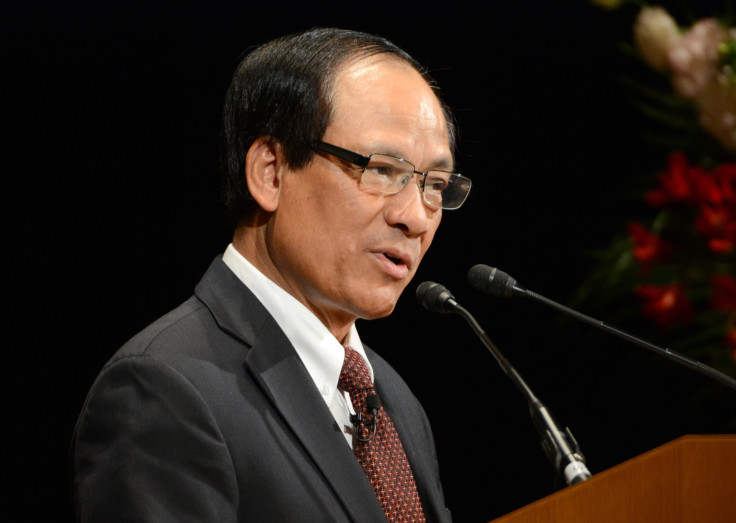ASEAN Chief Says Body 'Can't Accept' China's Territorial Claims In South China Sea

The secretary-general of ASEAN, southeast Asia's international commerce and security organization, said Sunday that the body rejected China's territorial claims in the South China Sea, according to reports.
The Association of Southeast Asian Nations “could not accept” China's claims, based on the nine-dash line, a territorial marker which the country uses to claim the majority of the South China Sea, as it is not compatible with international law, Le Luong Minh said Sunday, according to the Wall Street Journal.
He also said that the body hoped to quickly advance talks to establish a code of conduct on how to resolve territorial disputes among members states, but added that China had been reluctant to participate.
“We have not been able to engage China in more substantive discussions,” he said, according to the Journal.
China says ASEAN is not a party to the South China Sea dispute.
China's territorial claims in the South China Sea have angered many neighboring nations, including Vietnam, the Philippines, Malaysia and Brunei, who also claim sovereignty over territory claimed by China.
Le's comments are not his first foray in the the debate. In March of this year, he also rejected China's nine-dash line territorial claims, saying that "any hostility or conflict,” that broke out in the region could adversely affect economic integration of the ASEAN bloc.
In recent months, China has engaged in land reclamation development on the contested Spratly Islands. Recent aerial photographs have shown construction of a runway, thought to be capable of accommodating military aircraft.
The Philippines called for China to halt construction on the disputed territory Sunday, ahead of a regional summit next week.
Despite the Philippines' call, reports suggest that Malaysia will avoid using the upcoming summit to criticize China's actions in the disputed region.
© Copyright IBTimes 2025. All rights reserved.





















